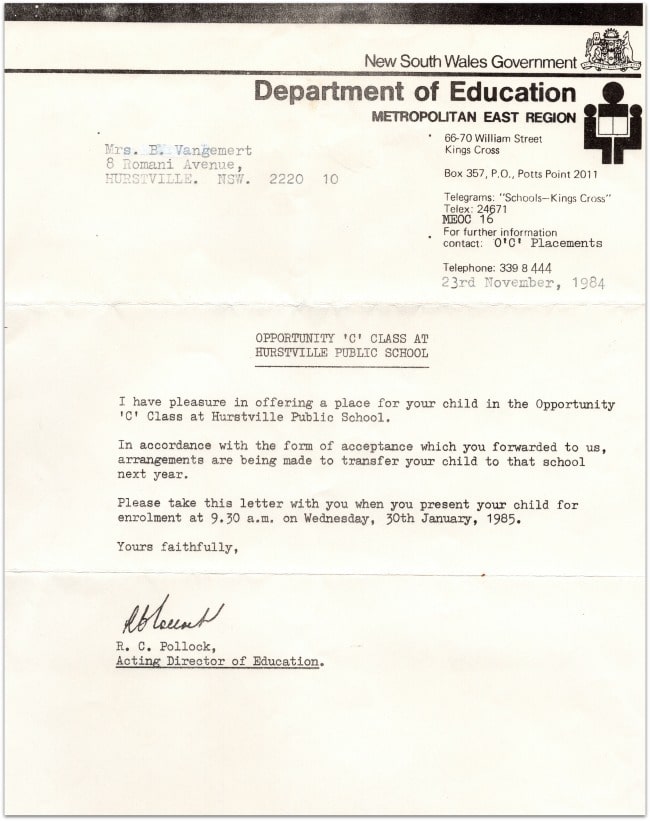When I was the Youth & Education Ambassador for Mensa, I tried to run for an at-large board position at NAGC. I received a phone call from an NAGC employee telling me that they were not going to allow me to run because I was “not enough of an advocate for gifted children” to be allowed to run.
Although that was years ago, it has stuck with me. It was painful, and I considered her words for hours/days/years.
I’ve been working hard to advocate for the gifted, and I am adding something to the website to advance that cause: a new series of interviews with gifted individuals. I’m calling it “Interview with a Gifted Kid,” and I’ll be interviewing gifted kids and grown-up gifted kids.
My hope is that it will create a body of voices that will be persuasive that gifted students have needs, that giftedness isn’t some “get out of hardship in school free” card, and that it will give hope to gifted individuals that they are not alone.
If you’d like to be interviewed, please contact me. I want the stories told.
The first story is that of my very own husband, Steven. I have heard his gifted story over the decades of our marriage, and it is powerful to me. He’s Australian (hence the beach picture), and that influences the story.
I hope you find this article interesting (It feels a little vulnerable to me to share a conversation between my husband and me) and I hope that you find benefit in this new series.
When did you first hear/discover that you had been given the label “gifted”?
In 3rd Grade I was moved from the second-highest math class to the very highest math class, which was done in kind of a weird way. I was sitting in class and an administrator came into the room. She said, “There are two more openings in Mr. So-and-So’s class.” We all knew that was the top class.
I sat up straight and folded my arms and really stretched my head and back upright, because I knew that was what we were supposed to do to get chosen. They picked me and one girl. They took us right out of the class then. I thought it was because I sat up really straight.
I didn’t think to look around to compare to see how other people were sitting. I had just figured that I was sitting up straight the best! In hindsight, it seems terrible that they did it in this manner actually. As I recall, everyone else was sitting up straight, and must have clearly thought they had a shot. I don’t even know if I told my parents about that. I should tell them about that.
Editor’s note: They know now.
I distinctly remember the first time I saw a fraction. The problem on the test was “What is 3 ÷ 4?” I think this was in 1st or 2nd grade.
I couldn’t figure it out immediately, so I went on with the other questions and would come back to it. I completed all the other questions on the one-sheet quiz in about 20 or 30 seconds I think. All of the others were just plain old division, they were super simple 14 ÷ 2 stuff. And then I got back to this 3 ÷ 4 one. I immediately realized that 3 didn’t actually go into four evenly, and therefore concluded it wasn’t possible. I couldn’t figure out why she put it on the test. This was my first introduction to fractions. When I heard the answer was “3/4” I thought that that was a bit of a cop out.
I mean, saying “The answer to 3 divided by 4 is 3 divided by 4”… well, that’s not an answer! You’re just restating the question.
“That’s pretty weak,” I thought to myself.
We hadn’t done anything outside of integers. The concept of fractions didn’t occur to me, although other mathematical constructs have occurred to me before I was taught them. It’s odd that I didn’t figure out fractions before I was taught them.
I distinctly remember seeing that problem. It was on the top row of the paper on the right. It was the only question I didn’t answer. The teacher explained it during class, and although I thought it was pretty cheap, I understood it and kinda thought I should have figured that out.
How did people explain it to you?
In 5th grade, I was chosen for what was called Opportunity Class. The program pulled from lots of schools, but was housed at my local school.
There were two teachers, Miss Rosnick, who was also the French teacher, and Mrs. Chalmers who was also the German teacher. I had Mrs. Chalmers. The classrooms were divided by a collapsible wall.
Even beforehand, I knew it was the top class, the smart class, but I didn’t know that it pulled from multiple schools. They would have had to buy new uniforms, so I don’t know how many came from other schools, actually, although I know some did. In fact I think maybe the majority came from other schools, because I remember that there weren’t too many kids I already knew.
I didn’t really understand what the class was, but I knew I got in because I was always number one or two in the class. I knew my parents had to give permission. No one ever used the word “gifted” with me.
Editor’s Note: I went through the amazing memory book my mother-in-love created for Steve, and I found the letter she received telling her that he had been selected for the gifted program, called the “Opportunity Class.” Note that this was a form letter indicating that they would “transfer your child” to the school, but for Steve he had already been enrolled at the school since kindergarten.

Were most of your friends highly intelligent as well?
Yeah, I think so. Definitely after that class, but before then, too. My friends in high school were the friendships that happened over computers. We were all into computers. I became a software developer, and I have no idea if they became developers, too.
Editor’s Note: At least one of them became a sports announcer on ABC Australia.
Looking back, can you see any ways in which your intelligence created hardship?
I always felt embarrassed when other people talked about how well I did in school in front of other people.
What expectations existed because of your high ability?
There was an expectation that I should do well. It was something that I wanted to do – not an expectation in my family.
I was three years ahead in math and three or four years ahead in reading. Actually for math I remember I was five years ahead in subtraction, and three or four years in all of the others… they split it out by operator for some reason.
I remember thinking how good it was that I was so far ahead, and that was cool. Math was my favorite.
What do you wish you could tell your younger self now?
I would like to assure him that if he realizes he is now no longer the top of the class, it makes no difference at all. I thought it did. I blamed my poor performances in school from 5th grade onward on being moved to the Opportunity Class. This discouragement continued for me for the rest of primary school, and through high school and really all the way through University.
In my own mind, the root cause was being placed in the higher class. I was no longer the top. I was now halfway, or sometimes even close to the bottom of the class, and I felt so discouraged.
If I could stop myself from feeling discouraged by that, I would have been way more motivated.
I think in my heart, I knew it didn’t make any sense to blame it on this one thing, but I basically did anyway. I didn’t have anywhere near as much motivation as I had prior to fifth grade.
I felt a positive pressure to be first. It’s kind of prideful actually – it’s not good – but it did drive me and motivate me, so it’s good in that sense.
As soon as I did my best and still got an 85, I was depressed. I wished I were smarter.
In hindsight, that wasn’t the issue [being smarter]. It was if I worked or not.
Before the higher class, the work was easy, and I didn’t have to do much. After the higher class, the work just got harder, it wasn’t that I’d just gotten dumber. I remember I definitely felt like I wasn’t as smart as I thought I was, and that just felt discouraging and kinda depressing.
If I could just convince myself back then of the futility… and risk… and frankly stupidity of that thought, that would have been great.
What did the school get right?
Separating us out into a different class was the right thing for me. It made school nowhere near as painful to be at. It does lead to pride, which can be destructive, however. I did have some of that, and I treated someone poorly because I thought I was better than he was because I was in the higher class and he was in one of the normal ones. He was actually my friend from church. I still feel bad about that.
It was good to be separated because I wasn’t as bored. There was actual stuff to do. They definitely treated us differently. We would go on major field trips for days on a bus. I mean, 60 kids. One we went to was a camp out in the woods for multiple days. It was called Borambola. There were dorms and everything. We did compass stuff – land navigation. We also did mindfulness-type stuff there. I remember realizing at the time that not everyone at my school was going to this place, and I was really glad I was in the higher class.
Editor’s Note: I found the place online, and you can see it here.
They separated boys and girls in high school, and I don’t know if that was the right thing to do or not. I’ve learned that it’s not common to do that with the whole school, so I don’t really have a way to compare what effect that may have had. I think it was better though.
What could the school have done differently?
I wish they could have helped with underachievement. I would have benefited from some encouragement to work despite the fact that others were doing better. That’s what would paralyze me and make me not want to try as much.
It’s a perfectionist tendency. I saw that even with my best effort, I wouldn’t do as well as others. I needed some strategy that encouraged me to work for my own benefit and not just to compete.
How similar of a student were you to your siblings?
I don’t really know about David (his eldest brother – Ed.) because he was so much older.
Raelene worked harder and was super smart. Darren was more conscientious than me, maybe. Maybe not. He was really super smart though. I wasn’t too different in ability, but I was the worst of bunch for motivation.
It’s possible I was the worst overall really, with how poor a work ethic I had with regard to school. Doesn’t matter how smart you are if you don’t work.
It wasn’t really a source of contention with parents. I was the youngest of six, so I think they were more relaxed by the time they got to me.
We’d talk about report cards, and I’d feel guilty if I hadn’t done well. Not because of anything they’d say, but because I just knew I should have done better.
There was no hands-on looking at assignments, discussing what there was to do.
It surprised me when I saw you do it with our kids. I think it would have been good overall, but I don’t think I would have liked it. If someone had talked with me regularly about my schoolwork, I think I would have had more motivation to do it and do it well. It was definitely not a common or normal occurrence. I remember Narelle and Darren helping me sometimes though.
How has giftedness impacted you in your adult life?
I actually still don’t know if I am gifted.
Editor’s Note: He blew the Mensa Admissions Test out of the water, and is truly the smartest person I have ever met. This is such a common issue with gifted kids and adults.
Our society doesn’t really reward those who say they’re smart, actually, although it has helped me in my profession.
I was able to learn programming easily. It comes easy to me. I realized early on in my university career that computing was what I understood the best and connected to the most.
It [giftedness] has created interpersonal issues. People think I’m intelligent and feel threatened sometimes. Especially if there’s someone whose job I know how to do, and I know when they don’t do it right.
I get frustrated when people don’t “get it”, when they don’t understand some concept I find easy to understand.
I also get frustrated when rules are changed. In sport it’s one thing, but I mean like the rules of work. When there are policies and people don’t follow them and nothing happens to them. That’s really frustrating.
Has Lisa’s work in the realm of giftedness helped you in any way?
Absolutely. I understand now why it was like it was for me – I mean the way it was growing up.
Especially the book on perfectionism. I had the type where if I couldn’t do it perfectly, I didn’t want to do it or I didn’t care.
I had no idea that was a thing. That would have been so wonderful to know that was a thing. It could have altered my whole education had I known that was a thing.
Just knowing it’s somewhat common, and it’s something you can control, and it’s something worth controlling.
If you don’t, it can do what it did to me. I didn’t even bother trying to work hard.
So that’s benefitted me.
We have three cognitively gifted children, and it is in no small part due to their teaching that came from you. The way you dealt with their schoolwork. You knew what to do with them in regards to school.
They wouldn’t be where they are today if it weren’t for that one thing. And because you helped them, I helped them, too.
I may have gotten help from my parents and sisters and Darren, but not much. We saw our boys’ schoolwork all of the time. It was 95% v. 5%. And that made a huge difference.
Wrapping Up
The story of sitting up straight in the class has always captivated me, but I didn’t know most of this before I interviewed him about it. So many things struck me, including his Imposter Sydrome. I mean, this guy is literally a genius, and he says, “I still don’t know if I’m gifted.”
Another thing that struck me was how little actual strategy we give gifted kids and their parents. I mean, he was put in this special program, but no one ever sat him or his parents down and said, “So, welcome to Hogwarts. Here’s what different about the wizarding world.”
I think it’s critically important to understand that the issues follow you into adulthood (like co-worker issues).
I hope you enjoyed the article, and again, if you would like to be interviewed, please let me know! Adults or kids (with parental permission) are welcome.
You May Also Like:
- How NOT to Tell a Child He/She is Gifted
- How to Tell a Child He/She is Gifted
- 8 Reasons You Should Label Kids as Gifted






